MACHIAVELLI, Niccolò. Libro della Arte della guerra di Niccolò Machiavegli cittadino et segretario fiorentino.
Florence, Heredi di Philippo di Giunta., 16 August 1521.Octavo (143 x 96 mm.), 124 leaves with seven military diagrams each one printed on two pages, Giunta device on recto of last leaf. Eighteenth century stiff vellum, spine in compartments with gilt decor and lettering piece. A pale waterstain, a few spots, an ancient restoration on the last two leaves affecting text, overall a good copy of this extremely rare book.
Exceedingly rare first edition of the first influential modern treatise on military art, published three-hundred years before von Clausewitz’s work. This dialogue completes the Machiavellian theoretical and political triptych, together with the Prince and the Discorsi sopra la prima deca di Tito Livio, but stands out as the only historico-political work published by the author during his lifetime. Machiavelli puts on the scene a dialogue articulated in seven books, taking place probably in 1516, in the most secret part of the Orti Oricellari, the garden of palace Rucellai where Machiavelli used to meet his closest friends and political interlocutors. The characters are chosen between contemporary high standing figures: among them, Cosimo Rucellai, the master of the house, and the famous Roman captain Fabrizio Colonna, who represents the author’s viewpoint. The originality of the work consists primarily in the attempt to go beyond the military feudal system, privileging the chivalry, in favour of the new conception of a popular and territorial militia. Machiavelli’s main sources are classical treatises such as Frontinus’ Stratagemata and Vegetius’ Epitoma rei militaris, which provide the main frame for the work, the sequence of the arguments, and the great part of the reflexions on the soldiers’ qualities, the army’s morphology, the tactical schemes. At the end of the work, Machiavelli introduces seven military diagrams, a set of drawings aimed at describing tactical schemes: in so doing, he recovers a tradition of Greek polemography and consigns it to a rich long-lasting fortune in the history of modern warfare. Machiavelli maintains the necessity of a general reform of military institutions, leading to a refusal of professional and mercenary armies and a recovery of citizen armies. As in other Machiavellian works, the dialogue is animated by a political aim, to rescue Italy from enslavement by foreigners, from economic ruin, and from a more general barbarisation of culture. The author looks at the Classical past in a utopian way, and identifies in the Roman Republican army the best model for the present; in fact, in his view, the military order corresponds with the civil order, so that a strong link can be established between justice and armies. The Swiss army is the concrete demonstration that a recovery of the ancient military orders is theoretically possible. In spite of this, the final judgment pronounced by Colonna is pessimistic: in light of a lucid, powerless awareness of the Italian situation, no real renewal of militia seems possible without a moral renewal of the soldier and a general inner renewal of the State.
16 CNCE 28102, 28104, 28105 & 28106; Pettas, Giunti, 232; I. Eramo, Disegni di guerra. La tradizione dei diagrammi tattici greci nell'Arte della guerra di Niccolò Machiavelli, 2012, 35-62; Arte della guerra, in Enciclopedia Machiavelliana, Roma, 2014, vol. I, 108-122.
Other Books
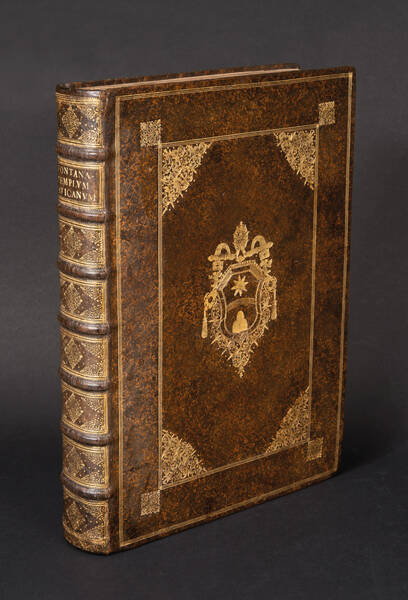
FONTANA, Carlo
Templum Vaticanum et ipsius origo cum aedificiis maximè conspicuis antiquitùs, & recèns ibidem constitutis; editum ab equite Carolo Fontana ... opus...
€ 38.000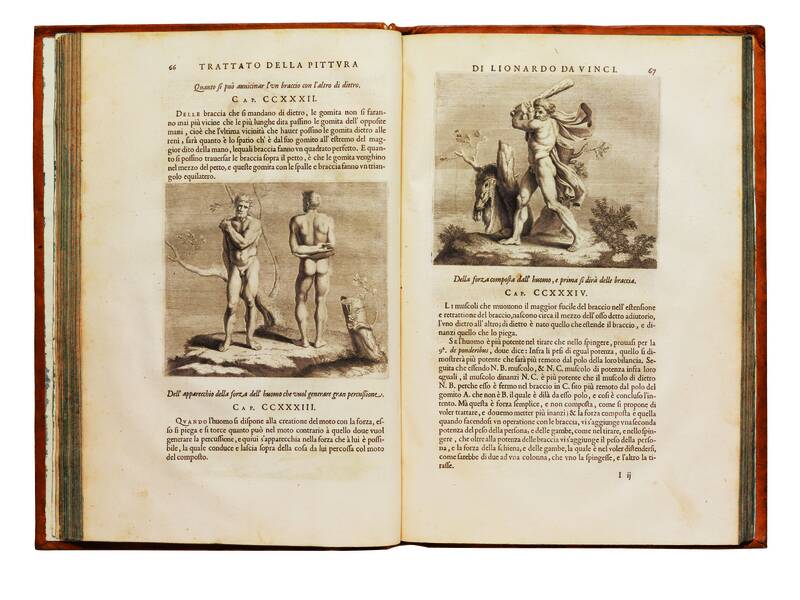
LEONARDO DA VINCI
Trattato della Pittura di Lionardo da Vinci, Nouamente dato in luce, con la vita dell’istesso autore, scritta da Rafaelle Du Fresne. Si sono giunti i...
SOLD OUT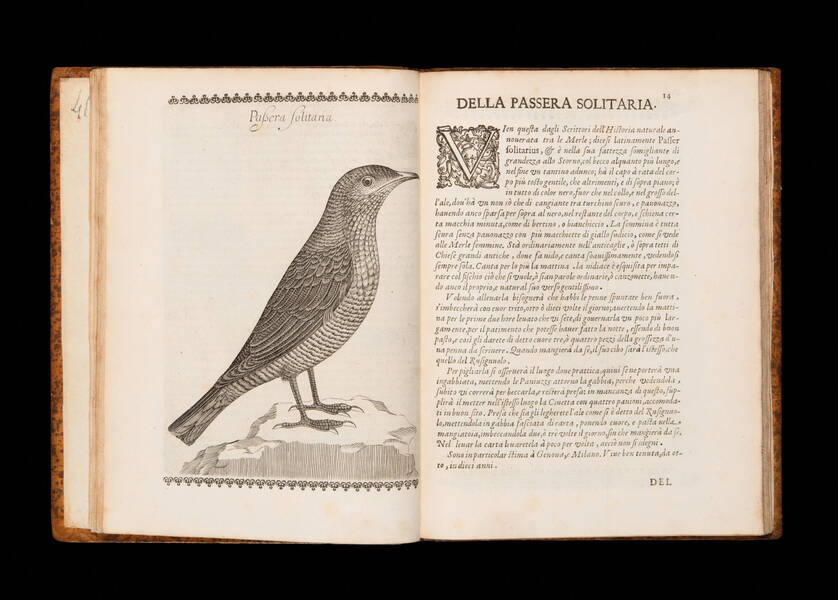
OLINA, Giovanni Pietro
Vccelliera ouero discorso della natura, e proprieta di diuersi vccelli, e in particolare di que' che cantano. Con il modo di prendergli, conoscergli,...
€ 6.000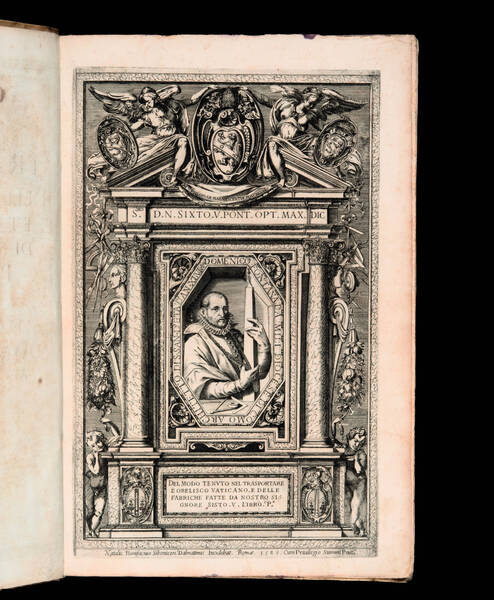
FONTANA, Domenico
Della trasportatione dell'obelisco vaticano et delle fabriche di nostro signore papa Sisto V fatte dal cauallier Domenico Fontana architetto di sua...
SOLD OUT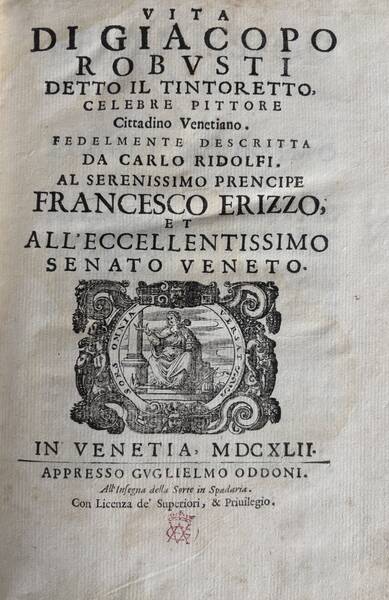
RIDOLFI, Carlo
Vita di Giacopo Robusti detto il Tintoretto, celebre pittore, cittadino venetiano.
€ 2.500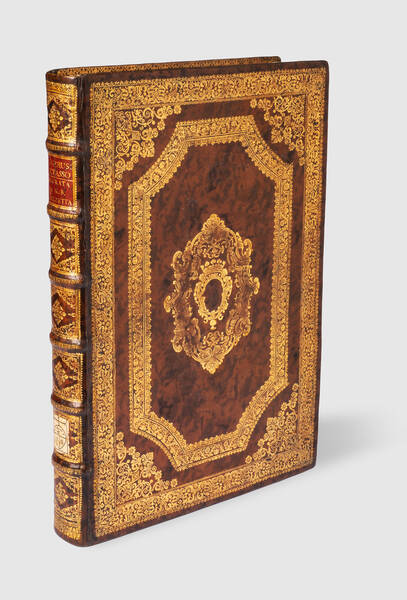
TASSO, Torquato
La Gerusalemme liberata di Torquato Tasso con le figure di Giambatista Piazzetta, alla Sacra Real Maestà di Maria Teresa d’Austria, regina...
€ 18.000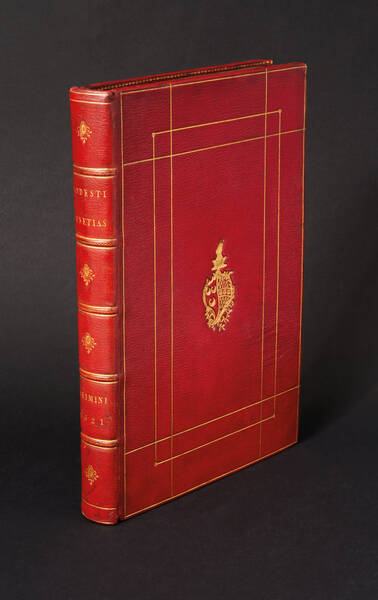
MODESTI, Publio Francesco
Pub. Francisci Modesti Ariminensis, ad Antonium Grimanum. P.S.Q.V. Venetias.
€ 23.000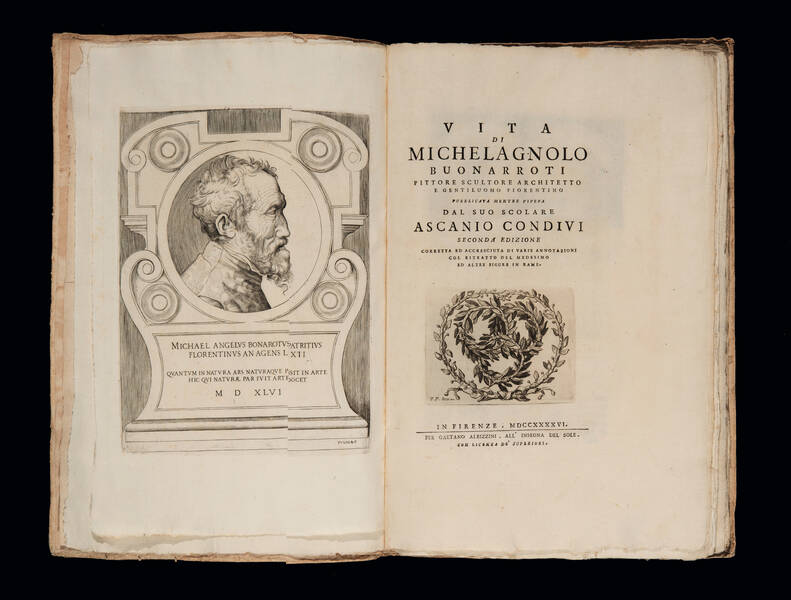
CONDIVI, Ascanio
Vita di Michelagnolo Buonarroti pittore scultore architetto e gentiluomo fiorentino pubblicata mentre viveva dal suo scolare Ascanio Condivi.
SOLD OUT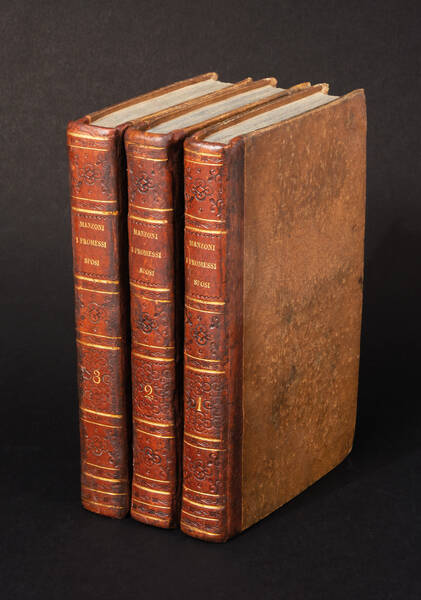
MANZONI, Alessandro
I promessi sposi, storia milanese del secolo XVII scoperta e rifatta da Alessandro Manzoni.
€ 11.500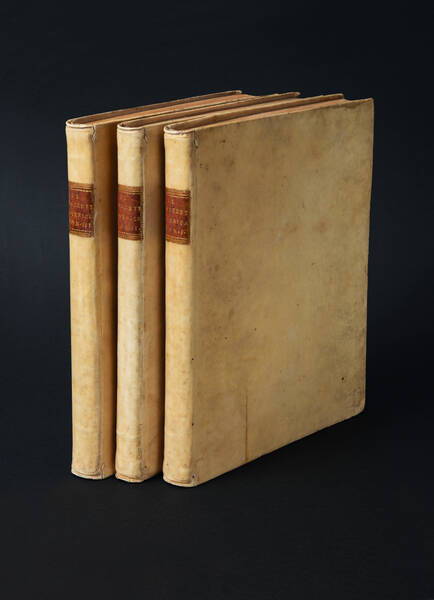
GAZZETTIERE AMERICANO
Il Gazzettiere Americano, contenente un distinto Ragguaglio di Tutte le Parti del Nuovo Mondo.
SOLD OUT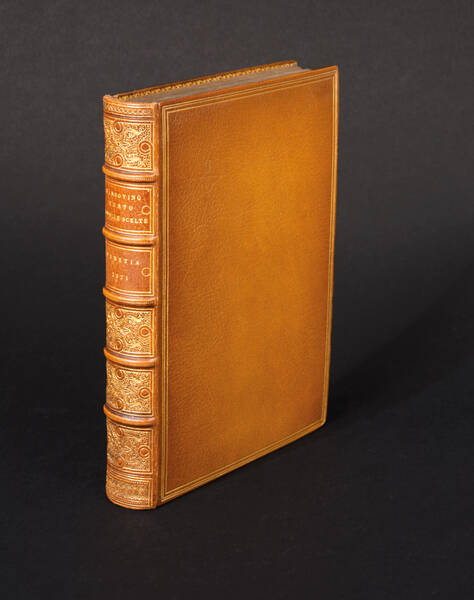
SANSOVINO, Francesco
Cento nouelle scelte da piu nobili scrittori della lingua volgare, con l'aggiunta di cento altre nouelle antiche, non pur belle per inuentione, ma...
€ 3.600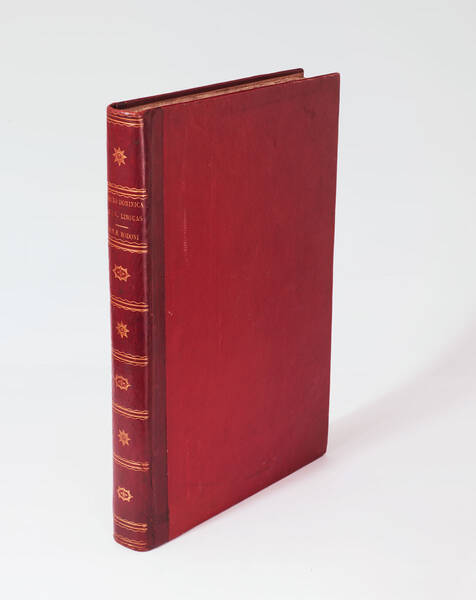
[BODONI]
Oratio Dominica in CLV linguas versa et exoticis characteribus plerumque expressa.
SOLD OUTMEDA RIQUIER rare books ltd.
4 Bury Street St James's
SW1Y 6AB London
Phone +44 (0) 7770457377
info@medariquier.com
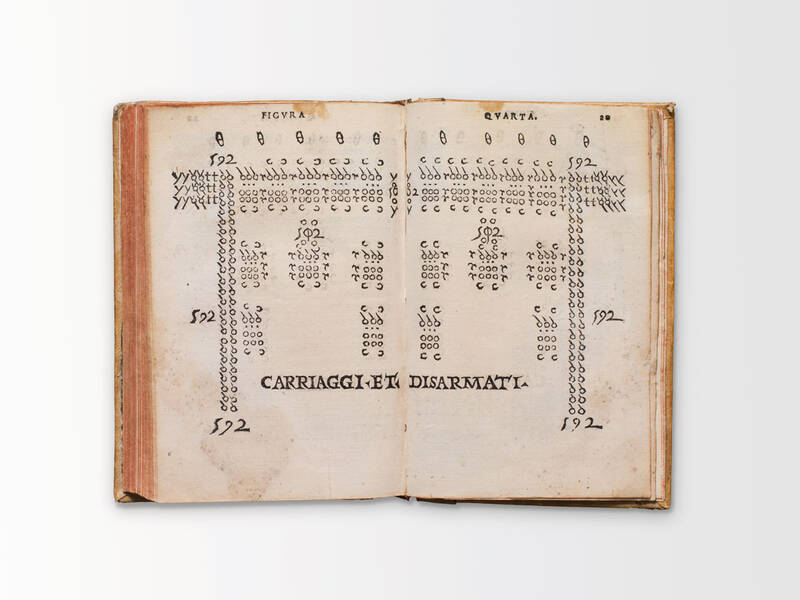
![Opera posthuma [Compendium grammatices linguae hebraeae]. Opera posthuma [Compendium grammatices linguae hebraeae].](https://www.medariquier.com/typo3temp/pics/9e46dbc214.jpg)
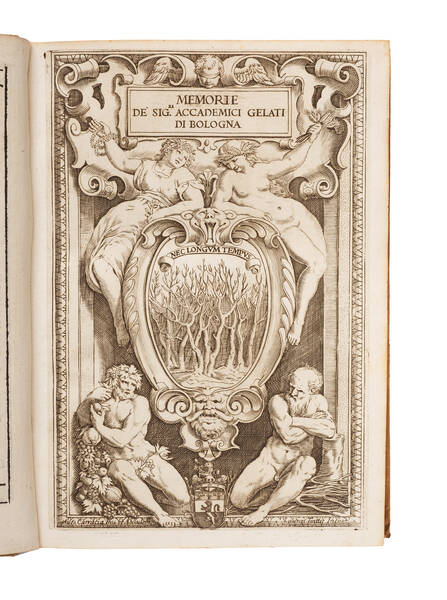
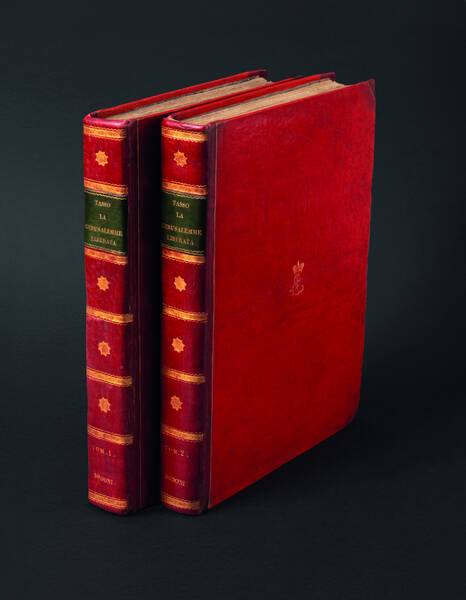
![Azhār al-afkār fī ğawāhir al-ahğār by Ahmad ibn Yūsuf al-Tīfāšī […]Fior di pensieri sulle pietre preziose di Ahmed Teifascite, opera stampata nel suooriginale arabo, colla traduzione italiana appresso, e diverse note di AntonioRaineri Azhār al-afkār fī ğawāhir al-ahğār by Ahmad ibn Yūsuf al-Tīfāšī […]Fior di pensieri sulle pietre preziose di Ahmed Teifascite, opera stampata nel suooriginale arabo, colla traduzione italiana appresso, e diverse note di AntonioRaineri](https://www.medariquier.com/typo3temp/pics/4baf8d2ef4.jpg)
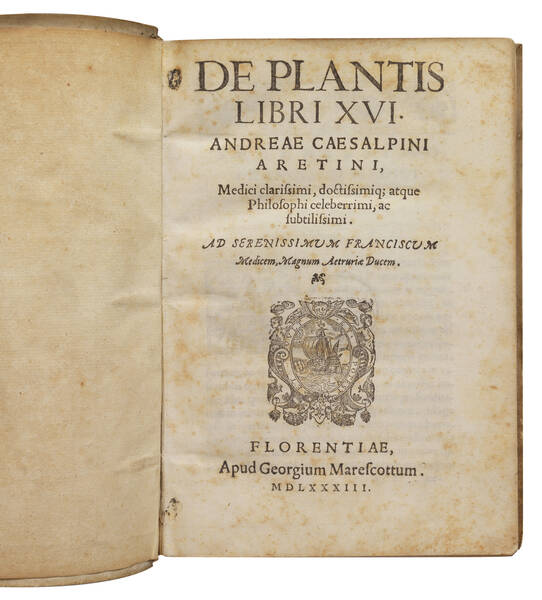
![[The Commentaries.] C. Julii Cæsaris Quae Extant. Accuratissimè cum Libris Editis & MSS optimis Collata, Recognita & Correcta. Accesserunt Annotationes Samuelis Clarke. S.T.P. Item Indices Locorum, Rerumque & Verborum Utilissimæ. Tabulis Æneis Ornata. [The Commentaries.] C. Julii Cæsaris Quae Extant. Accuratissimè cum Libris Editis & MSS optimis Collata, Recognita & Correcta. Accesserunt Annotationes Samuelis Clarke. S.T.P. Item Indices Locorum, Rerumque & Verborum Utilissimæ. Tabulis Æneis Ornata.](https://www.medariquier.com/typo3temp/pics/e0a4828aa4.jpeg)